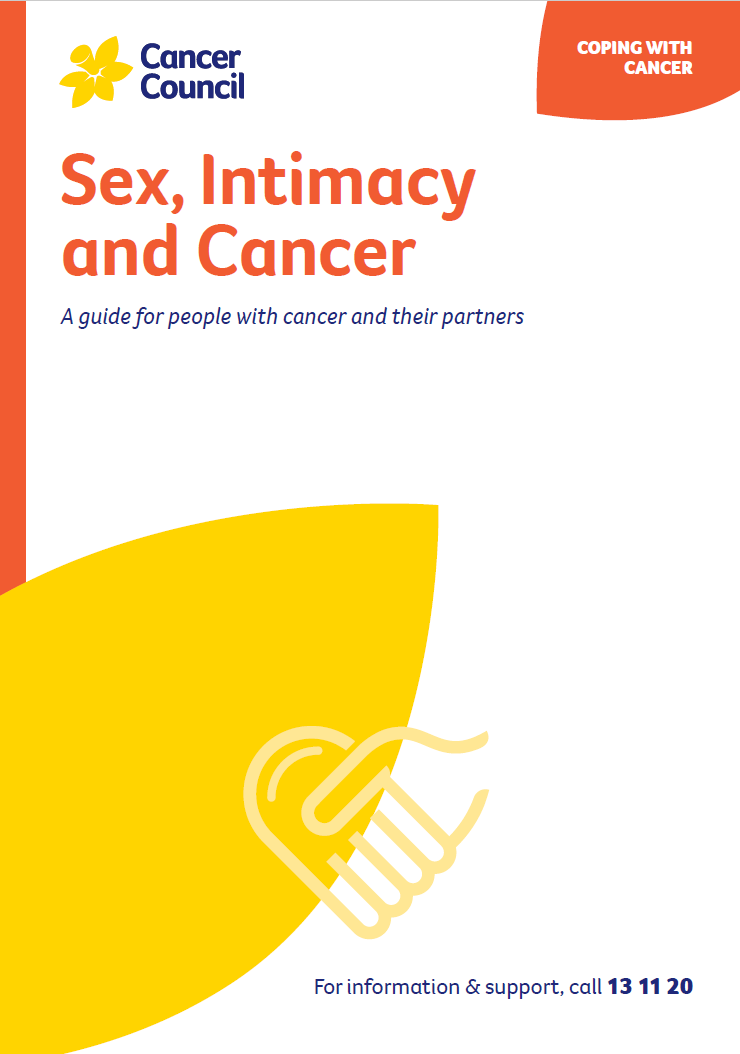- Home
- About Cancer
- Managing side effects
- Sex, intimacy and cancer
- How cancer treatment can affect your sex life
- The types of challenges you may face
The types of challenges you may face
Treatment or the cancer itself may cause a physical change to how you can have sex, the sensations you feel and your enjoyment of sex, or whether you still feel like having sex.
Physical changes
You may want to have sex, but your body may not respond like it used to. Some sexual positions or activities may be uncomfortable or different now.
It’s natural to feel sad or upset about the loss of your previous sex life or desire. Try to focus on creating intimacy and pleasure in new ways, instead of recreating how you used to have sex (e.g. kissing then penetration).
Sex may be different after a cancer diagnosis, but it can still be good. You may find new ways to enjoy it and feel close to your partner.
Emotional changes
Cancer can influence how you feel about your body (body image), your emotions and your relationships. These things can affect your interest in sex. It is stressful finding out you have cancer. If you had stress already in your life or relationship, this may become more intense. It’s important to find ways to manage stress and take care of your emotional wellbeing.
For teenagers and young adults
Young people with cancer need to continue to develop and mature. This includes living as normally as possible, going on dates or having a partner. But this can feel hard, especially with changes to how you look, fertility issues, or if you don’t have much experience of sex.
As well as talking to your treatment team or a sex therapist, you could get in touch with Canteen. They offer counselling in person, over the phone, by email or direct message (DM). They also run online forums and camps. Call 1800 835 932 or visit canteen.org.au.
→ READ MORE: Communicating with your partner
Podcast: Sex and Cancer
Listen to more of our podcast for people affected by cancer
More resources
Dr Michael Lowy, Sexual Health Physician, Sydney Men’s Health, NSW; Gregory Bock, Clinical Nurse Consultant – Oncology Coordinator, Urology Cancer Nurse Coordination Service, Cancer Network WA; Anita Brown-Major, Occupational Therapist and Director, Thrive Rehab, VIC; Helena Green, Psychosexual Therapist and Clinical Sexologist, Insync for Life Psychology and Women Centre, WA; Dr Lisa Mackenzie, Clinical Psychologist, HNE Centre for Gynaecological Cancer, Hunter New England Local Health District, NSW; Dr Tonia Mezzini, Sexual Health Physician, East Obstetrics and Gynaecology, SA; Sophie Otto, Prostate Cancer Nurse Consultant – Central Adelaide Local Health Network (CALHN), SA; Giovanna Raco, 13 11 20 Consultant, Cancer Council Victoria; Kath Schubach, Urology Nurse Practitioner, VIC; Emily Stevens, Gynaecology Oncology Clinical Nurse Consultant, Southern Adelaide Local Health Network, Flinders Medical Centre, SA; Anja Vukovic, Clinical Specialist Social Worker, Gynaecological Oncology, Westmead Hospital, NSW; Alan White, Consumer; Kathleen Wilkins, Consumer; Merran Williams, Consumer.
View the Cancer Council NSW editorial policy.
View all publications or call 13 11 20 for free printed copies.

